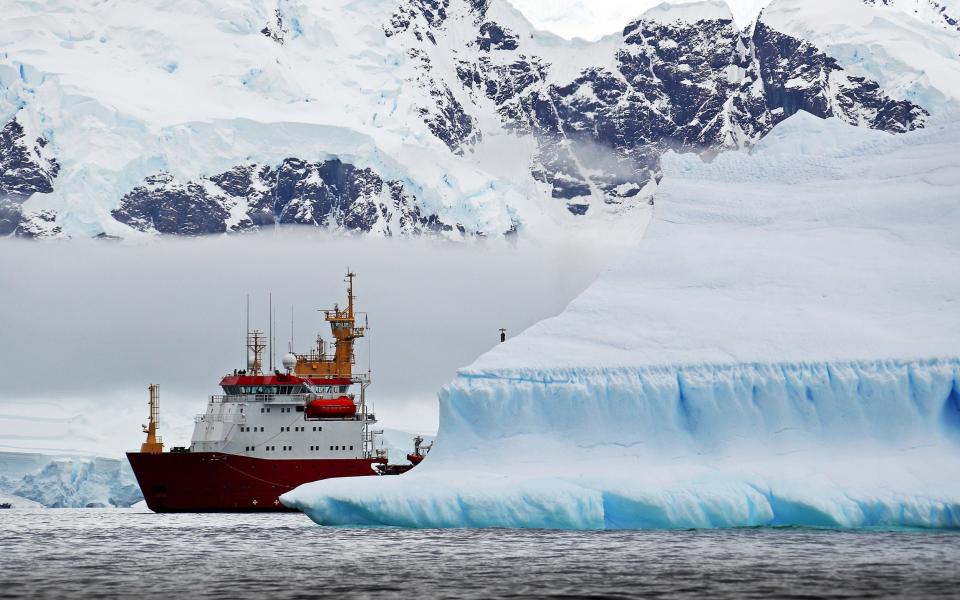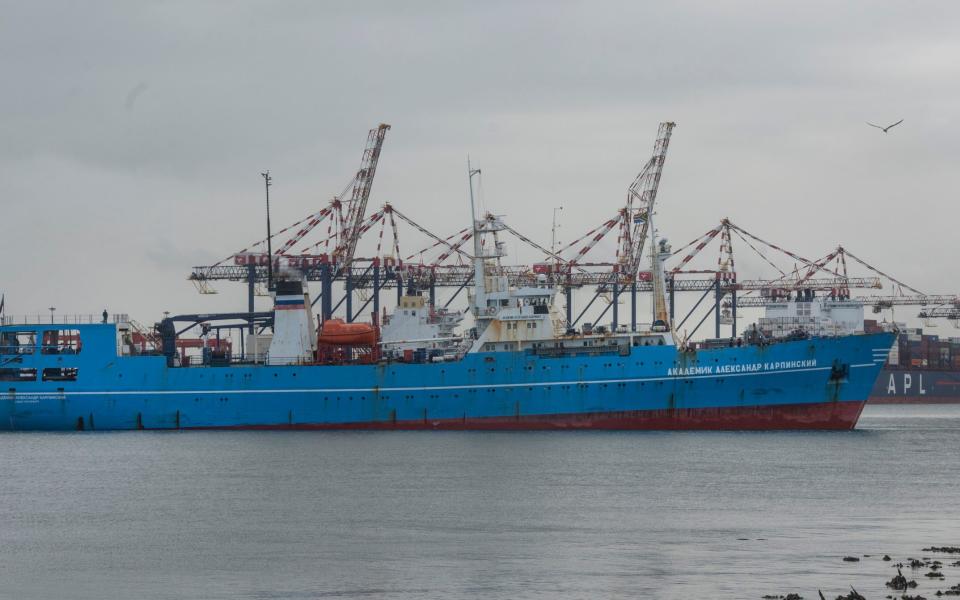Russia finds vast oil and gas reserves in British Antarctic territory

Russia has found vast oil and gas reserves in the Antarctic, much of it in areas claimed by the UK.
The surveys are a prelude to bringing in drilling rigs to exploit the pristine region for fossil fuels, MPs have warned.
Reserves totalling 511bn barrels of oil – about 10 times the North Sea’s entire 50-year output – have been reported to Moscow by Russian research ships, according to evidence given to the Commons Environment Audit Committee (EAC) last week.
It follows a series of surveys by the Alexander Karpinsky vessel, operated by Rosgeo – the Russian agency charged with finding mineral reserves for commercial exploitation.
Antarctica is meant to be protected by the 1959 Antarctic Treaty that bans all mineral or oil developments. The UK’s interests are overseen by the Foreign Office – but it has been accused of ignoring the emerging crisis.
Junior minister David Rutley last week told the EAC that his department had decided to trust Russian assurances it was just conducting scientific research, adding: “Russia has recently reaffirmed its commitment to the key elements of the treaty.”
Experts on the region disagree, warning that placing any trust in Russia to stick to its obligations was naive – as shown by its invasion of Ukraine.
Klaus Dodds, professor of geopolitics at Royal Holloway College, an expert in Antarctica, who also gave evidence, said Russia’s activities were far closer to prospecting for oil and gas than to genuine science.
“The Antarctic Treaty faces renewed challenges not least from bad-faith actor Russia and increasingly assertive China.
“Rosgeo has been engaging in seismic surveys and other related surveying work … Russia’s activities need to be understood as a decision to undermine the norms associated with seismic survey research, and ultimately a precursor for forthcoming resource extraction.”

The EAC’s decision decided to challenge the Foreign Office’s management of the UK’s Antarctic interests following reports in the Daily Maverick, a South African online journal, which discovered Moscow’s activities after its survey ship docked in Cape Town.
Such issues will likely come to a head in India later this month at the annual meeting for signatories to the Antarctic Treaty, where Russia will be challenged on its plans for extracting fossil fuels.
The British Antarctic Territory (BAT) forms the largest and most southerly of the UK’s 14 Overseas Territories – and the least hospitable with 99pc of it covered in ice.
In the prehistoric past, however, it experienced warmer climates, with vegetation that potentially allowed fossil fuel deposits to form.
It stretches north west from the South Pole, embracing the Antarctic Peninsula and the Weddell Sea – historically renowned as the place where Ernest Shackleton’s ship Endurance sank and now for potentially holding vast oil and gas reserves.
Most of the British Antarctic Territory is subject to competing claims from Argentina and Chile – which are bound to intensify if the evidence from Russia’s seismic surveys are proven by subsequent drilling.
The Foreign Office co-funds the British Antarctic Survey which has five research and logistical stations, and 250 staff, supported by the Royal Navy, and by the research ship RSS David Attenborough – all regarded as vital not just for science but also for maintaining the UK’s claims to the region.
Other experts warn that the Ukraine conflicts, and the rivalry between China and the US were the biggest threats to Antarctica’s future.
Professor Alan Hemmings, commander of the British Antarctic Survey station during the 1982 Falklands war between Argentina and the UK, said the growing tensions could destroy the treaty that has protected the frozen continent from development. The treaty is up for review in 2048 but any nation involved is also able to walk away from it whenever they choose.
Now a researcher at the University of Canterbury in New Zealand and co-author of the Handbook on the Politics of Antarctica, Hemmings said: “There will never be a sane time to extract hydrocarbons out of the Antarctic. The thing that will sink us all is any attempt to realise Antarctica’s hydrocarbons.
“And that, as we see, is precisely the focus of Russian activities right now. “We are in the midst of very serious tensions between Western states and Russia over Ukraine and between the US and China in relation to global hegemony.”
Albert Lluberas Bonaba, executive secretary of the Antarctic Treaty Secretariat, based in Buenos Aires, Argentina, said such issues would be discussed at the organisation’s annual conference but would not comment on the tensions around Russia’s activities.
In a statement the Foreign, Commonwealth & Development Office repeated its acceptance of Russian pledges: “Russia has repeatedly assured the Antarctic Treaty Consultative Meeting that these activities are for scientific purposes.”
Rosgeo, headquartered in Moscow, did not respond to requests for comment.

 Yahoo Sport
Yahoo Sport 






































